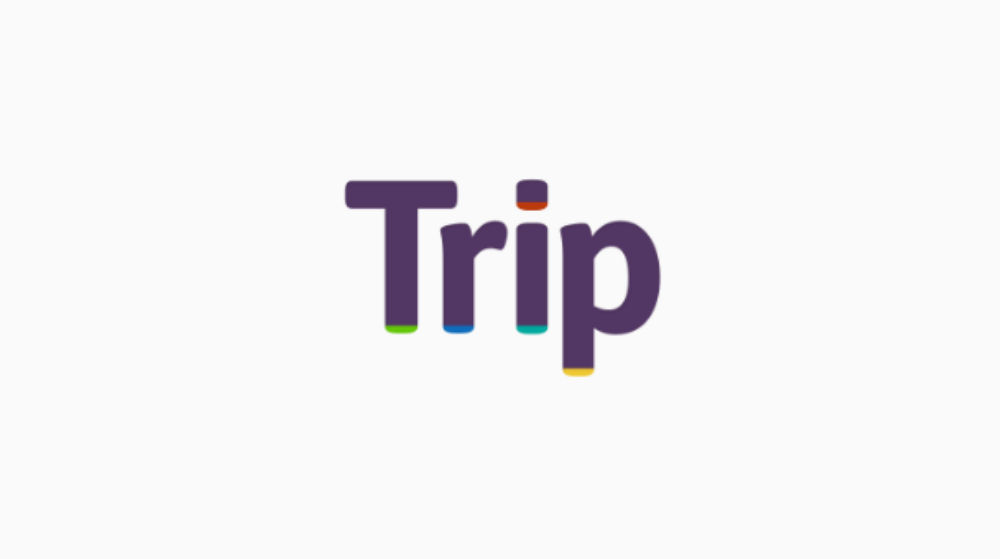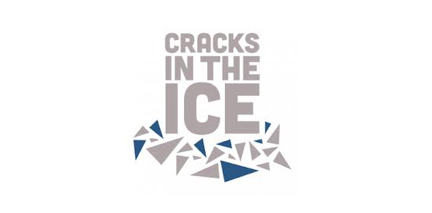Below are some links to important guidelines for conducting clinical research in Australia. Another useful resource will be the Human Research Ethics Committee (HREC) you plan to submit your project to for review. We recommend contacting the HREC (or associated research office) early in the development of your clinical research protocol. They will be able to provide further information on the submission process, as well as local policies and requirements. Often, additional resources pertaining to clinical trials pharmacies, radiation exposure requirements, etc., will also be available from the office to which you are submitting your research project for review.
Developing a Research Protocol
The SPIRIT Statement
When developing your clinical trial protocol in line with The National Statement and ICH-GCP, the SPIRIT statement can be used as a guide for what to include. SPIRIT stands for Standard Protocol Items: Recommendations for Interventional Trials. The SPIRIT statement provides recommendations for a minimum set of scientific, ethical and administrative elements that should be addressed in a clinical trial protocol.
http://www.spirit-statement.org
The Enhancing the QUAlity and Transparency Of health Research (EQUATOR) Network
Guidance for writing a protocol for non-clinical trial research (e.g. a qualitative or case-control study) as well as additional links to reporting guidelines.
http://www.equator-network.org

Critical Appraisal Toolkits
Critical appraisal skills enable you to systematically assess the trustworthiness, relevance and results of published papers.
The Joanna Briggs Institute
The Joanna Briggs Institute’s critical appraisal tools assist in assessing the trustworthiness, relevance and results of published papers.
https://jbi.global/critical-appraisal-tools

The Critical Appraisal Skills Program
The Critical Appraisals Skills Programme (CASP) has 25 years of significant and unrivalled expertise in the delivery of training to healthcare professionals.
https://casp-uk.net/casp-tools-checklists/

Reporting Study Results
When reporting Clinical Research (i.e. preparing a manuscript for a peer-reviewed journal), there are specific guidelines to follow when analysing and writing up your results. Some journals will explicitly state which guidelines authors should follow. Well recognised reporting guidelines for Randomised Controlled Trials (RCTs), Observational Studies, and Systematic Reviews / Meta-analyses are listed below.

http://www.consort-statement.org/
CONSORT
The CONSORT (CONsolidated Standard of Reporting Trials) guideline for RCTs was developed by the CONSORT group and contains a checklist and flow-diagram for authors and reviewers.

https://www.strobe-statement.org/index.php?id=strobe-home
STROBE The STrengthening the Reporting of OBservational Studies in Epidemiology (STROBE) Statement is a guideline for reporting cohort, case-control, and cross-sectional studies. A checklist and flow-diagram is available for authors and reviewers.

http://www.prisma-statement.org/
PRISMA Preferred Reporting Items for Systematic Reviews and Meta-Analyses (PRISMA) is a minimum set of items for reporting systematic reviews or meta-analyses. A check-list and flow diagram is available for authors and reviewers.
Trial Registries
Clinical Trials should be registered, and without registration peer-reviewed journals can refuse to publish the study results. For example, the International Committee of Medical Journal Editors (ICMJE) requires trial registration as a condition for publication of research results generated by a clinical trial. Studies are required to be publicly registered prior to enrolling any participants. In Australia, trials can be registered with the Australian and New Zealand Clinical Trials Registry, the United States National Library of Medicine, or both.
Australian and New Zealand Clinical Trials Registry
The Australian and New Zealand Clinical Trials Registry (ANZCTR) is an online registry of research being undertaken in Australia, New Zealand and elsewhere. It is a free trial registry recognised by the World Health Organisation (WHO) International Clinical Trials Registry Platform (ICTRP) as a primary registry (see the WHO ICTRP here: http://apps.who.int/trialsearch/)
http://www.anzctr.org.au/

The US National Library of Medicine ClinicalTrials.gov Trial Registry An online registry and global database of clinical trials. It is a free trial registry recognised by the World Health Organisation (WHO) International Clinical Trials Registry Platform (ICTRP) as a primary registry (see the WHO ICTRP here: http://apps.who.int/trialsearch/)
https://clinicaltrials.gov/

Research databases
The TRIP Database is a clinical search engine designed to allow users to quickly and easily find and use high-quality research evidence to support their practice and/or care.
https://www.tripdatabase.com/Home

The Cochrane Libraryis a collection of databases that contain different types of high-quality, independent evidence to inform healthcare decision-making. This includes: The Cochrane Library of Systematic Reviews which is the leading resource for systematic reviews in health care; The Cochrane Central Register of Controlled Trials (CENTRAL); and Cochrane Clinical Answers (CCAs).
https://www.cochranelibrary.com/

The Open Access Button provides access to free, legal research articles delivered instantly or automatically requested from authors.
https://openaccessbutton.org/

The PubMed database contains more than 32 million citations and abstracts of biomedical literature. It does not include full text journal articles; however, links to the full text are often present when available from other sources, such as the OpenAccess Button (above)
https://pubmed.ncbi.nlm.nih.gov/

Other research resources
The Australian Clinical Trials Alliance creates and hosts a number of varied clinical research resources, for their members and the public. These range from consumer toolkits to statistics advice, trial design guidance to advice on research during the time of COVID-19.
https://clinicaltrialsalliance.org.au/resources/

The James Lind Library uses material from history to illustrate the principles underlying fair tests of treatments and their development and application over time, and how these relate to the interests of today’s patients. It is an interesting resource which illustrates the evolution of principles of fair tests of treatments, and the application of these principles, in practice.
https://www.jameslindlibrary.org/
Ethical conduct in clinical research
The National Statement on Ethical Conduct in Human Research.
This is a set of guidelines for any researcher in Australia conducting research with human participants. The guidelines are also relevant to those involved in ethical review, research governance, or study participants. The National Statement promotes ethical human research that involves participants being accorded respect and protection. The National Statement clarifies the roles and responsibilities of institutions and researchers (in the design, conduct and dissemination of results of human research), and review bodies (i.e. the Human Research Ethics Committee). The National Statement should be used when designing, reviewing and conducting research that involves human participants in Australia.
https://www.nhmrc.gov.au/guidelines-publications/e72

ICH-GCP The International Council for Harmonisation of Technical Requirements for Pharmaceuticals for Human Use (ICH) has a set of guidelines called Good Clinical Practice (GCP). ICH-GCP is a harmonised international standard for the design, conduct, monitoring, auditing, recording, analysing, and reporting of clinical trials that involve human participants. It is based on the principle that clinical trials should be conducted ethically. These ethical principles have their origin in the Declaration of Helsinki. Good Clinical Practice (GCP) is: “A standard for the design, conduct, performance, monitoring, auditing, recording, analyses, and reporting of clinical trials that provides assurance that the data and reported results are credible and accurate, and that the rights, integrity, and confidentiality of trial subjects are protected.” Study staff must complete and maintain up-to-date appropriate and accredited ICH-GCP training.
http://www.ich.org/about/mission.html

The Australian Code for the Responsible Conduct of Research
A code to guide institutions and researchers in responsible research practices. This Code is a reference for people outside the research community who require information on the standards expected in the responsible conduct of research within Australia; and was developed for universities and other public sector research institutions.
https://www.nhmrc.gov.au/_files_nhmrc/publications/attachments/r39.pdf

Legal and Regulatory considerations
Depending on the study design, legal and regulatory requirements may need to be considered. Below are some useful links.
The Clinical Trial Notification (CTN) scheme is a notification process whereby an Australian clinical trial sponsor is required to notify the Therapeutic Goods Administration (TGA) that the research involves an ‘unapproved’ medicine or device, or a medicine or device is being used outside of its ‘approved’ indication.
https://www.tga.gov.au/clinical-trials

Clinical Trial Research Agreements
A Clinical Trial Research Agreement (CTRA) may be required between the sponsor and the site, or between collaborative or cooperative research groups. Medicines Australia has developed templates (which in many cases have been pre-approved by research organisations).
https://medicinesaustralia.com.au/policy/clinical-trials/clinical-trials-research-agreements/

Insurance and Indemnity
Provision of insurance and indemnity is required for almost all clinical research. The mechanism for insurance and indemnity depends on the type of study sponsor (e.g. pharmaceutical company, Contract Research Organisation, or investigator-initiated whereby a public institution acts as sponsor). The Medicines Australia templates are recommended for use and are widely accepted. However, in some instances, sponsors whose circumstances do not fit these scenarios will need to arrange their own clinical trials insurance. Further information is available on the Medicines Australia website (for commercially sponsored research), or through State government insurance schemes. Researchers and / or sponsors of research are encouraged to contact the applicable HREC for insurance and indemnity information specific to the project needs.
https://medicinesaustralia.com.au/policy/clinical-trials/indemity-and-compensation-guidelines/
If you are interested in taking part in a clinical trial
Australian Clinical Trials
The Australian Government provides information for people who are considering or who have been invited to take part as a participant in a clinical trial. Information and resources are provided to consumers as well as health care providers, researchers and industry.
https://www.australianclinicaltrials.gov.au/

The National Institutes of Health (US) Clinical Trials and You
The NIH Clinical Trials and You website is a resource for people who want to learn more about clinical trials. The website covers most of the frequently asked questions, breaking down how the research process works, who the key stakeholders are and what are the kinds of clinical research.
https://www.nih.gov/health-information/nih-clinical-research-trials-you

The Australian Clinical Trials Alliance have developed a Consumer Information Pack which describes what it means to be involved in health research and the many ways you can get involved.
https://involvementtoolkit.clinicaltrialsalliance.org.au/consumers

























